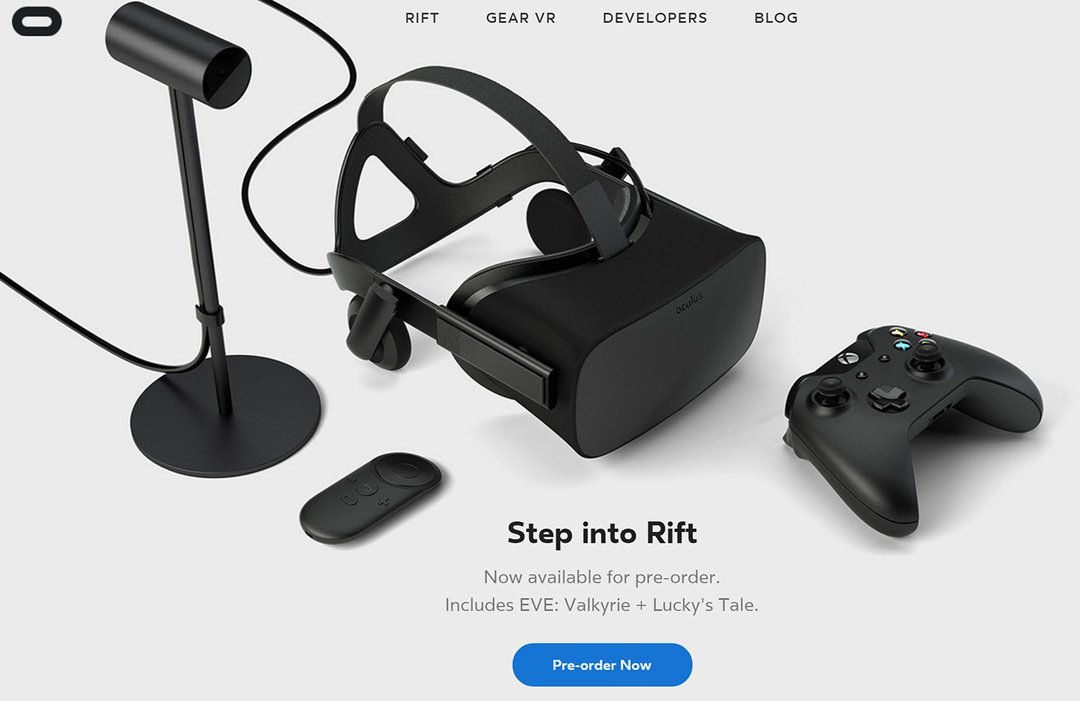March 28th, 2016: today is the day the Oculus Rift hit the market, the day where Virtual Reality is now being unleashed onto a mass market stage for gamers. It has been talked about ad nauseum in tech blogs and magazines, and for years, companies have been slowly building up hype for a new era of emersive, revolutionary gaming.
The question that I have is, are we ready for that shift, or is this gaming revolution going to fall on deaf years?
Both are absolute possibilities, and to be quite honest, I have no idea how this is going to go. On the one hand, people have been talking about the Oculus Rift for years: at the last two PAX East conventions, the line for demos on the showroom floor was filled to max capacity at all times. If you wanted to experience the technology still in development, you had to wait on line for more than two hours. Companies like Ubisoft and High Voltage have been working towards having launch titles for the system, and later this year, two other entry points into VR – the HTC Vive and the Playstation VR – are being released. There is some definitive buzz out there about the idea of strapping technology to your face to make for a more dramatic, intensive gaming experience.

At the same time, I can’t help but ask if we, as a collective of gamers, are really ready for this oncoming storm. Part of me is worried this new era of content is going to be shunned, rather than be accepted and embraced. There’s a few good reasons as to why this might happen:
First, price and accessibility. The cheapest VR system expected at the moment is the Playstation VR this fall, but that will be $400 before any more needed accessories like the camera or move controller… or the Playstation 4 itself. The Oculus Rift clocks in at $600 today, and the HTC Vive is going to go for a whopping $800 this April. That is a lot of money, and while gamers are certainly known for dropping lots of disposable income for shiny toys, there's a more spotty record on peripherals, or for things that require extra equipment. A good example might be the requirment of things such as the Playstation 3's camera, which was billed as a way to have more interactive games. Soon, it was discarded to the discount rack in stores. The Microsoft Kinect, a very potent, incredibly interesting piece of hardware, has been met with lukewarm responses, even derision due to the cost involved. Which brings me to another issue.

Ubisoft's game Eagle Flight looks amazing, and a real new way to experience games. Will people embrace it, or find it to be a side note?
The second problem for VR systems is going to be overcoming the gimmick factor, and being embraced as a ‘main stream’ way to enjoy video games. I got the original Kinect for the Xbox 360, and absolutely loved it. I had friends come over, and we played Dance Central with nerdy, shameless glee for weeks. It was brought out at parties for Fruit Ninja, and other ways to make a fun fool of yourself in a public setting. I was fascinated with the possibilities of this machine. Yet, the response by the overall community was not typically positive. Many derided it as something that didn't truly create a game experience. Others said that the games which came out for it were not very well made, and indeed, that turned out to be an issue. As public opinion for the Kinect wavered, developers felt less and less driven to create new content for the device.
This sort of self-fulfilling prophecy holds true on a much larger scale in the gaming industry. Remember the Ouya? There had been, once upon a time, a very excited response to this new system; it was going to be a way to break the mold of large companies owning the console wars, a way to create a new platform for gamers. Now, just a few years later, it is all but forgotten. Nintendo continues to innovate with system design and new ways to play gaming, from the original Wii controllers to the new gamepad for the Wii U, but again, many games barely use these additional functions, due to development costs or simply not wanting to be labelled as gimmicky. There are many people online that have written off Nintendo consoles all together, stating that the sheer processing power of the XBox 1 and PS4 is where the future is: more evolution of what's already out there, rather than revolution into something brand new.

Chronos is a launch title for the Oculus Rift that looks absolutely gorgeous, but will people find the experience immersive enough to warrant the price tag?
Now, VR is a little different, than the examples above. There are a lot of companies out there, from hardware developers and software creators, that are investing tons of time and effort into Virtual Reality systems. The idea of VR has been out for years, but with this day, it is now something that’s hoping to be mass produced, distributed to thousands as a form of entertainment rather than just simple gimmick. This day has been coming for a while, and so there is a bit more hype out there. At the same time though, as I look through forums and online debates, there is a large outspoken group already turning up their noses at the idea; either the price point of entry is just too expensive, or they are convinced that these VR games are not 'real' games, and this is a fad waiting to die out in another year.
What do you think? Is this going to be the new face of games, or is this just a little side note in gaming's history? Do you think it is going to take off right away, or is the cost just too high to make it work for everyone?